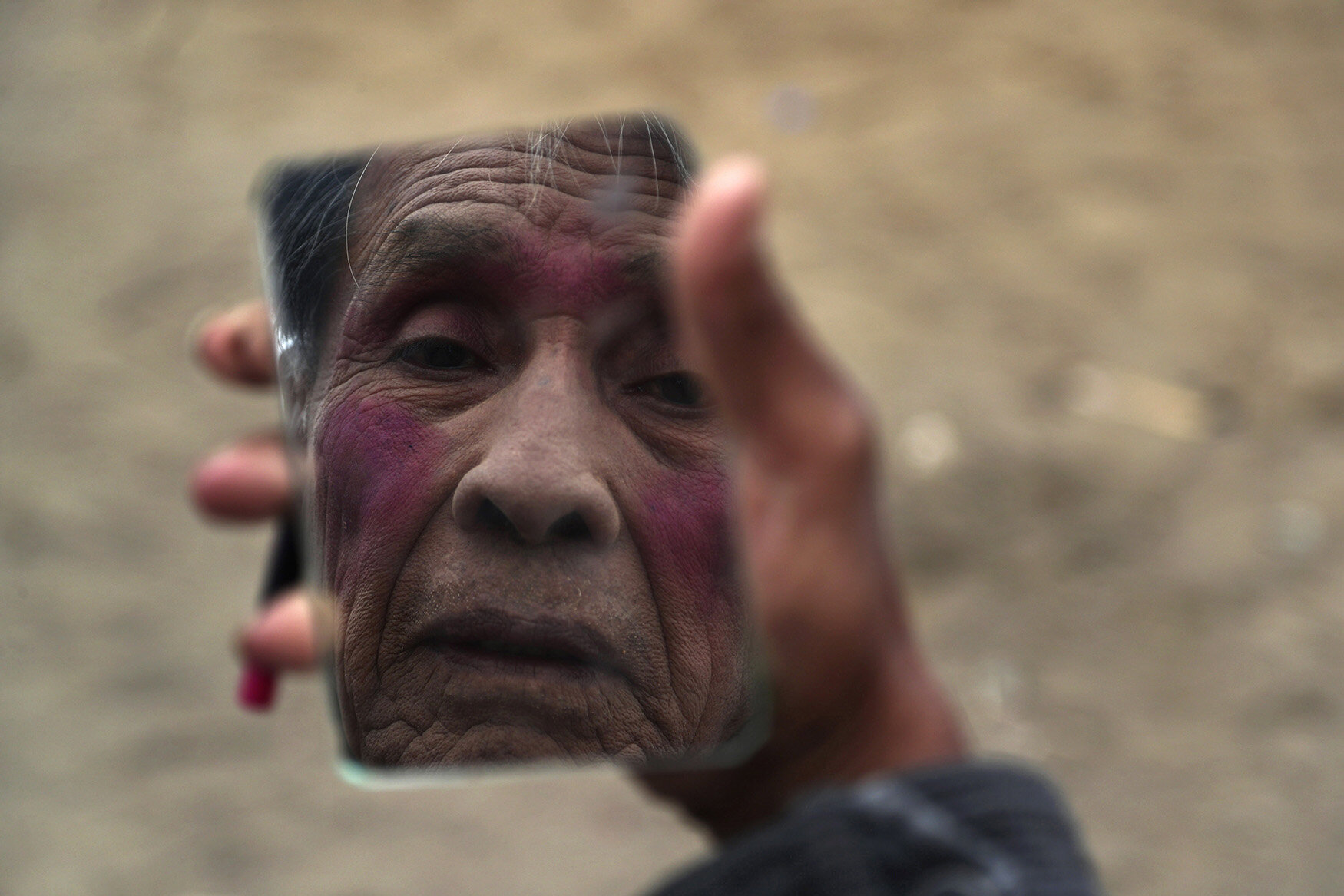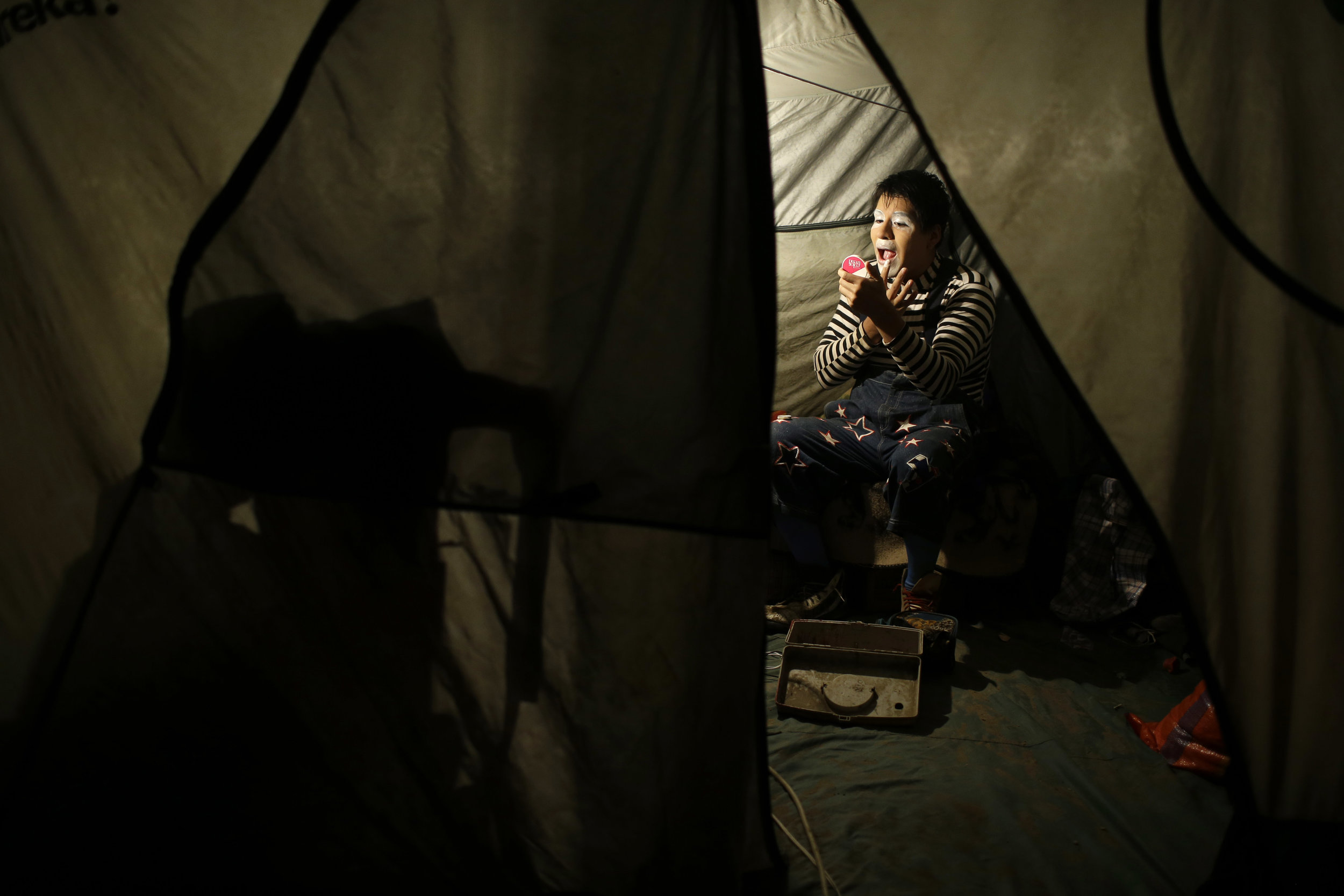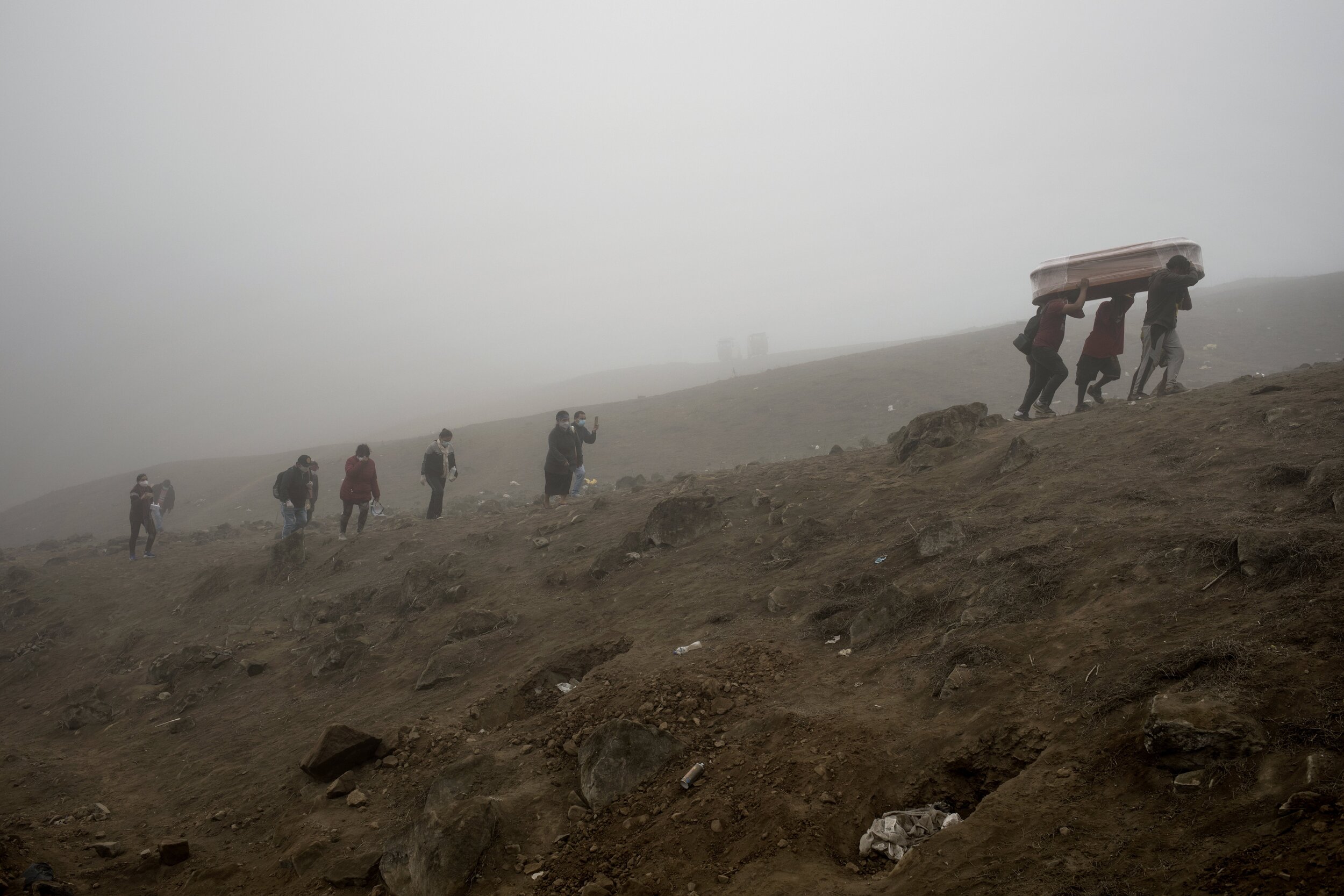Clowns suffer, adapt in Peru due to the pandemic

Circuses in Peru are built around clowns, providing work for more than 500 of the characters. But the shows have been struggling in recent years, their patrons lured away by the internet, video games and other live entertainment, and then the pandemic hit.
The coronavirus has kept millions of Peruvians locked down at home, dealing a hard blow to the hundred or so small circuses in the country.
In an empty lot in Lima, Santos Chiroque keeps the yellow tent, logs and ropes that he used until March to set up the circus that fed him and his family.
He had put money into the new tent in hopes of boosting business. “Money invested in vain,” says the 74-year-old, whose clown name is “Piojito.”
Now his wife and five children sell caramel apples on the streets of Lima in search of some coins.
Julio Cesar Chiroque, whose circus clown clown name is "Galleta," or Cookie, leaves a home where he failed to sell candied apples as he canvasses the outskirts of Lima, Peru, Aug. 5, 2020. (AP Photo/Martin Mejia)
Santos Chiroque, whose circus clown name is "Piojito," or Little Tick, trains on a swing outside his home on the outskirts of Lima, Peru, Aug. 10, 2020. (AP Photo/Martin Mejia)
Julio Cesar Chiroque, 38, tears up as he explains his family's dire economic situation brought by the shutdown to curb the spread of COVID-19 on the outskirts of Lima, Peru, Aug. 10, 2020. (AP Photo/Martin Mejia)
Santos Chiroque, whose circus clown name is "Piojito," or Little Tick, laughs at his grandchild's comment that he looks like a woman, as he shows off his clown costume on the outskirts of Lima, Peru, Monday, Aug. 10, 2020. (AP Photo/Martin Mejia)
At least one clown has died from the coronavirus — William Tovar in the city of Huancayo. His white coffin was painted with colored circles and six saddened clowns carried him through the streets of the city.
Other clowns are trying to adapt to the pandemic confinement. Carlos Olazábal and his four children perform children’s shows using video calls from their four-story house. His family also sells apples and salty popcorn to bring in an income.
Olazábal, who performs as “Chiquitin,” says he also had put away some money for times of crisis.
“I was not thinking of a pandemic. My fear is earthquakes,” he says, alluding to the frequent tremors that shake Peru, whose 25,648 coronavirus deaths are the third most in Latin America behind Brazil and Mexico.
Carlos Olazabal, 65, whose clown name is "Chiquitin," or Little One, center, performs with his family in a studio set up in their home on the outskirts of Lima, Peru, Aug. 10, 2020. (AP Photo/Martin Mejia)
Jhona Zapata, whose circus clown name is “Jijolin," is reflected in the window of a home where he tries to well caramelized apples on the outskirts of Lima, Peru, Aug. 5, 2020. (AP Photo/Martin Mejia)
Carlos Olazabal, 65, whose clown name is "Chiquitin," or Little One, center, performs with his family in a studio set up in their home on the outskirts of Lima, Peru, Aug. 10, 2020. (AP Photo/Martin Mejia)
Santos Chiroque, whose circus clown name is "Piojito," or Little Tick, looks into a mirror as he demonstrates how he puts on his clown makeup, using just lipstick, on the outskirts of Lima, Peru, Aug. 10, 2020. (AP Photo/Martin Mejia)
Santos Chiroque looks in a mirror as he shows off his costume outside his home on the outskirts of Lima, Peru, Aug. 10, 2020. (AP Photo/Martin Mejia)
Sara Olazabal, whose circus clown name is "Chiquilina," walks between her brothers Alan "Chiquilin," left, and Michel "Chiquitin Jr." to a home where they will perform a show outside and the children will watch through windows on the outskirts of Lima, Peru, July 20, 2020. (AP Photo/Martin Mejia)
Text from AP News Story AP PHOTOS: Clowns suffer, adapt in Peru due to the pandemic.
Photos by Martin Mejia





